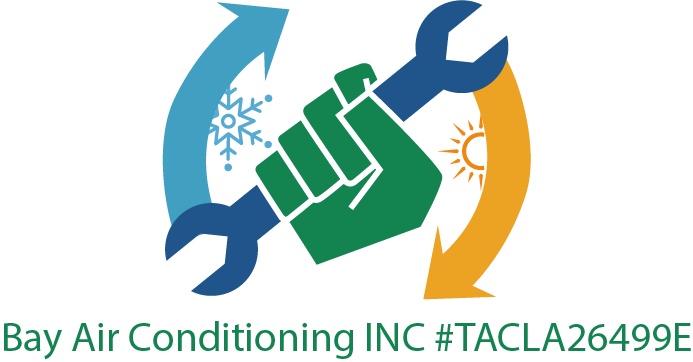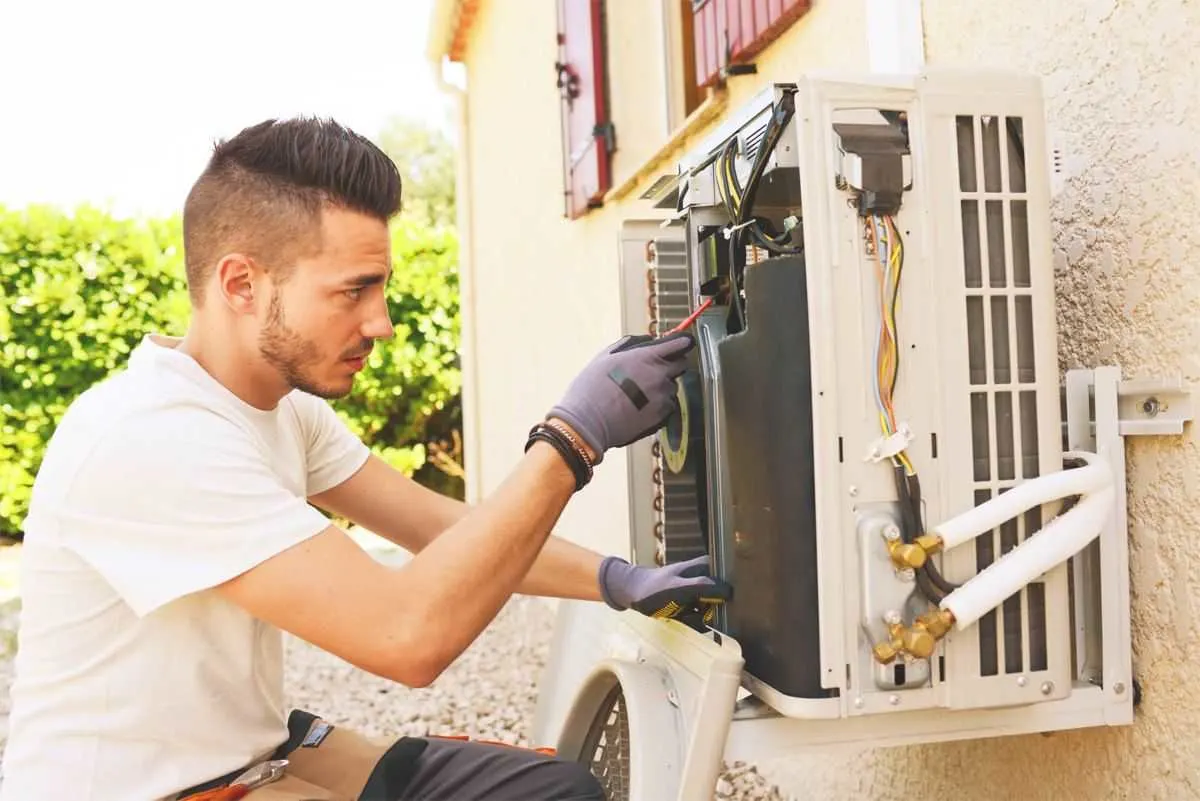Boiler Repair vs Replacement: Which Saves You More in the Long Run?
Boiler issues are among the most dreaded surprises for homeowners and business owners alike. When that moment hits—your boiler’s on the fritz—you’re often left facing a big question: Should you invest in a boiler repair or opt for a full replacement? This decision doesn’t just affect your short-term comfort, it impacts your long-term energy bills, safety, and overall peace of mind. Whether you’re in the dead of winter or preparing for colder months, understanding the financial and practical implications of both options is essential.
At Bay Air Conditioning, we specialize in honest, expert-driven boiler repair and replacement services designed to fit your needs and budget. Let’s explore the benefits, drawbacks, and savings potential of both solutions so you can make a smart, informed decision.
The Real Cost Breakdown: Repair vs Replacement
To determine whether a boiler repair or full unit replacement is the better investment, it’s crucial to compare both upfront costs and long-term expenses.
| Factor | Boiler Repair | Boiler Replacement |
| Average Cost | $150–$900 | $3,000–$8,000+ |
| Time to Complete | 2–4 hours | 1–2 days |
| Warranty | May not extend existing coverage | New warranty (5–10 years) |
| Energy Efficiency | May stay the same | Usually improves significantly |
| Expected Lifespan Gained | 1–5 years | 10–20 years |
| Environmental Impact | Neutral or negative | Positive with energy-efficient models |
| Resale Value Impact | Minimal | High if selling within 5 years |
Boiler repair tends to be more budget-friendly upfront. But if your unit is old or inefficient, replacement might save you more in the long run through reduced energy bills and fewer breakdowns.
When Boiler Repair Makes More Sense
There are cases where boiler repair is the smarter—and more economical—route. These include situations where the issue is minor, such as a faulty thermostat, leaking valve, or broken ignitor. If your unit is less than 10 years old and you’ve kept up with regular maintenance, repair can extend its life without breaking the bank.
At Bay Air Conditioning, we evaluate your system with precision, identifying whether a fix is feasible or if deeper issues are lurking. Minor boiler repair tasks usually come with lower costs, minimal downtime, and little disruption to your routine.
When Boiler Replacement is the Wiser Investment
If your boiler is more than 15 years old, requiring frequent repairs, or causing energy bills to spike, replacement might be the more cost-effective option over time. Older units—especially those without modulating burners or sealed combustion systems—can be energy hogs. Over time, even repeated repairs may not restore full efficiency, meaning you’re pouring money into a system that’s already past its prime.
New high-efficiency boilers offer energy ratings of 90% or more, compared to older models stuck at 60%–70%. That efficiency adds up to hundreds, if not thousands, in savings over the years. If you’re considering selling your home soon, a new boiler can also boost property value and appeal to potential buyers.
Signs You Should Choose Boiler Repair
- The boiler is under 10 years old
- No history of frequent breakdowns
- Repairs cost less than 30% of replacement value
- Your energy bills haven’t significantly increased
- The heat output is still consistent and reliable
If any or all of these points describe your situation, boiler repair might be all you need right now. It can quickly restore comfort and extend your unit’s lifespan without a huge expense.
Signs You Should Choose Boiler Replacement
- Boiler is 15+ years old
- Requires frequent repairs (more than twice a year)
- Repair cost exceeds 40–50% of the replacement cost
- Noticeable loss of efficiency or heat output
- Produces strange smells or sounds (signs of dangerous malfunctions)
- You’re planning to stay in the home long-term
A new boiler isn’t just about fixing a problem—it’s about upgrading your entire home’s energy efficiency and reliability. If your current system has become unreliable, replacement is often the smarter investment.
Energy Efficiency: The Long-Term Money Saver
One of the biggest reasons to replace instead of repair is energy efficiency. According to the U.S. Department of Energy, upgrading from an older boiler with 60% AFUE (Annual Fuel Utilization Efficiency) to a new 90%+ model can cut your heating costs by up to 30%.
That’s not just money saved—it’s also a reduced carbon footprint, less stress on your HVAC system, and better indoor comfort all winter long.
Warranty & Peace of Mind
Another long-term benefit of boiler replacement is the warranty coverage. While most boiler repair work might only come with a short 30–90 day warranty, a brand-new boiler typically includes 5–10 years of protection—covering parts and, in some cases, labor.
If your boiler is constantly breaking down and out of warranty, replacement gives you confidence that you won’t be dealing with the same issues next year—or next month.
The Risk of Delaying a Boiler Replacement
Holding off on replacing a failing boiler can be dangerous and costly. Leaks, carbon monoxide exposure, and even complete system failure can occur if aging boilers are pushed past their limits. Additionally, you could end up spending hundreds in emergency repairs that could’ve been avoided by replacing the system proactively.
Emergency replacements are also more expensive than planned installations, so it pays to act early.
Professional Assessment: Your Best First Step
Still unsure whether to repair or replace? Schedule an inspection with a certified HVAC technician. At Bay Air Conditioning, we don’t upsell—we diagnose and guide. Our team will inspect your system thoroughly, identify current issues, and present you with cost-effective solutions tailored to your situation.
Sometimes all it takes is a small fix. Other times, replacing your unit might actually cost you less in the next 12–24 months than another round of repairs.
Final Verdict: Repair or Replace?
The answer isn’t always black and white, but here’s a rule of thumb:
- Repair if the unit is relatively new, hasn’t broken down often, and the fix is inexpensive.
- Replace if your boiler is over 15 years old, inefficient, or constantly breaking down.
Think of boiler repair as a short-term solution—and boiler replacement as a long-term investment in your comfort, safety, and energy savings.
Conclusion: Choose Smart, Not Just Cheap
In the end, boiler repair is perfect for newer systems with minor issues—but older, inefficient boilers often cost more in the long run through repairs and high energy bills. By comparing costs, evaluating the system’s age and condition, and working with trusted experts like Bay Air Conditioning, you can make a decision that ensures comfort, safety, and savings for years to come.
FAQs About Boiler Repair vs Replacement
How much does a typical boiler repair cost?
The average cost ranges between $150 and $900, depending on the issue and your location.
Can an old boiler be made efficient through repairs?
Somewhat, yes—but it’s rare for repairs alone to match the efficiency of a modern condensing boiler.
Is replacing a boiler a messy process?
With professional service, boiler replacement is usually completed in 1–2 days with minimal mess or disruption.
How long does a new boiler last?
Most modern boilers last 15–20 years with proper maintenance.
Is boiler replacement tax-deductible or eligible for rebates?
Sometimes—local energy companies or federal programs offer rebates for high-efficiency upgrades.
Can I continue repairing my boiler indefinitely?
Technically yes, but after a certain point, it becomes more expensive than replacing it entirely.

